The Constitution requires the Division of Police to prevent excessive force, to ensure that searches and seizures are reasonable, and to ensure that police services are delivered free from bias.
To further these goals, the City has agreed to provide clear guidance to officers; increase accountability; provide for civilian participation in and oversight of the police; provide officers with needed support, training, and equipment; and increase transparency.
In its December 2014 findings report on the investigation of CDP, the Department of Justice found that there was "reasonable cause to believe that CDP engages in a pattern or practice of using unreasonable force in violation of the Fourth Amendment," which included:
- The unnecessary and excessive use of deadly force, including shootings and head strikes with impact weapons;
- The unnecessary, excessive or retaliatory use of less lethal force including tasers, chemical spray and fists;
- Excessive force against persons who are mentally ill or in crisis, including in cases where the officers were called exclusively for a welfare check; and
- The employment of poor and dangerous tactics that place officers in situations where avoidable force becomes inevitable and places officers and civilians at unnecessary risk.
The City and CDP did not agree with these findings. Nonetheless, they agreed to enter into a settlement with the DOJ to implement reforms geared toward addressing these and many other core constitutional issues.
During the implementation of the Consent Decree, a number of policy, procedure, and practice reforms will occur within the CDP. These changes will not be implemented overnight. However, in the coming months and years, the Cleveland community can expect to see, among many other reforms, the following:
changes to use of force policies & procedures
New use of force policies will be geared toward providing officers with clearer and more precise "rules of the road" for using force. They will also implement rigorous new methods for the Department to respond to, record, investigate, and review uses of force – so that problematic incidents can be addressed fairly and transparently and so that even minimally problematic incidents can be the source of continuing learning and innovation within the Division of Police.
enhanced, new officer training
Officers will receive substantial training on use of force, searches and seizures of individuals, crisis intervention, and numerous other issues. The training will be consistent with national best practices in law enforcement and in adult education. Training will be scenario-based, with interactive elements that allow officers to practice real-world skills in a training environment in the midst of learning new concepts and understanding new expectations under the Division's revamped policies. Academy training of new recruits and field training for newly minted officers will comply with best practices.
changes to internal investigations
The Decree requires a new, non-sworn, and civilian head of CPD's Internal Affairs (IA) Division, which conducts the Division's investigations of use of force, other critical incidents, and other allegations of misconduct generated by Division personnel. A dedicated and specially-trained Force Investigations Team, or FIT Team, will soon investigate significant uses of force.
increased focus on new ways of addressing individuals experiencing mental health, substance abuse, and other behavioral crises
A number of incidents that ultimately require the use of force involve individuals experiencing mental health, substance abuse, or other behavioral issues. The Decree requires substantial focus on policies, procedures, and training for officers on individuals experiencing such behavioral crises. A Mental Health Advisory Committee, consisting of the Division and a broad network of social service providers, mental health practitioners, and addiction specialists, will meet regularly to provide guidance to assist the Division in improving its response to individuals experiencing a crisis.
new policies and reporting requirements on stops and searches of civilians
The Decree requires more robust reporting and supervision of the stops and searches of civilians. Police officers will receive additional training on the Fourth Amendment, bias-free policing, procedural justice issues, and concepts related to implicit bias.
reform of the complaint investigation & officer discipline systems
The process and standards for investigations of civilian complaints by the Office of Professional Standards (OPS) will be updated and made more rigorous. Discipline imposed for officer performance failing to meet Division standards will be consistent, fair, and supported by evidence.
reforms to accountability & oversight mehcanisms
A new Inspector General will monitor, audit, and report on the systemic, Division-wide performance of officers. The Division will have new, dedicated personnel focusing on ensuring that it is a data-driven organization where management, supervision, and deployment decisions are made on the best data and objective evidence.
Photo credit: Tony Dejak/AP




